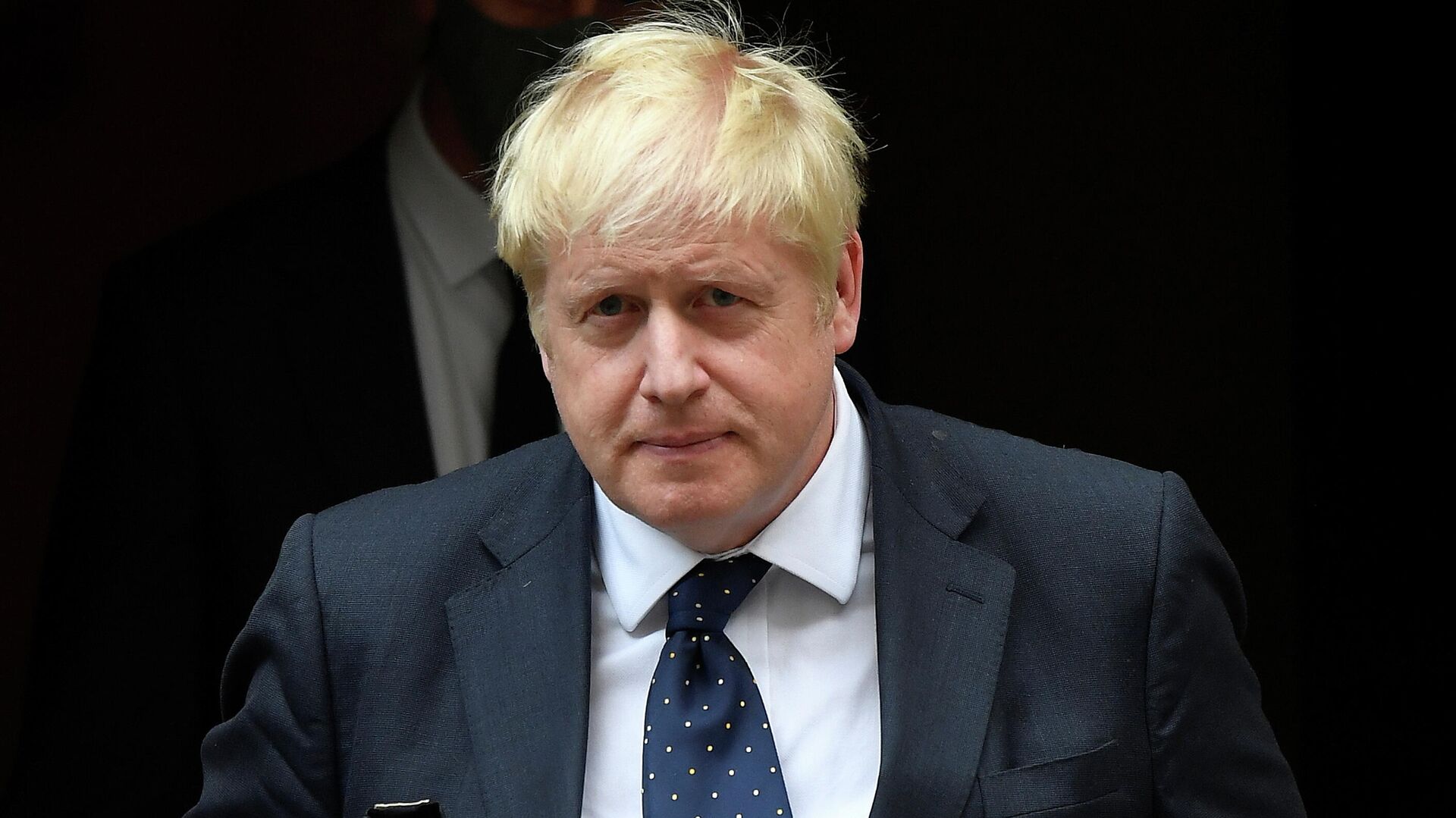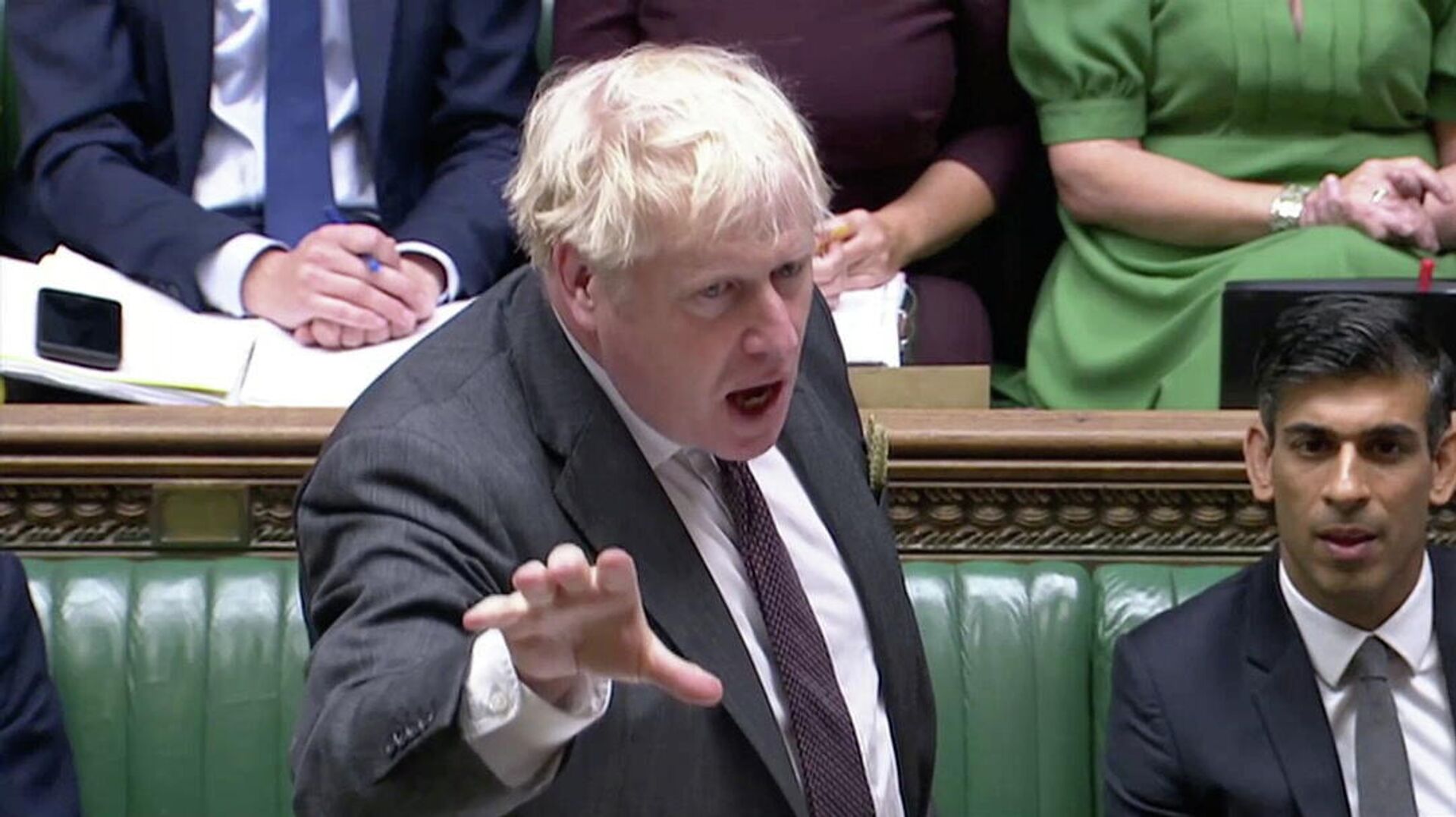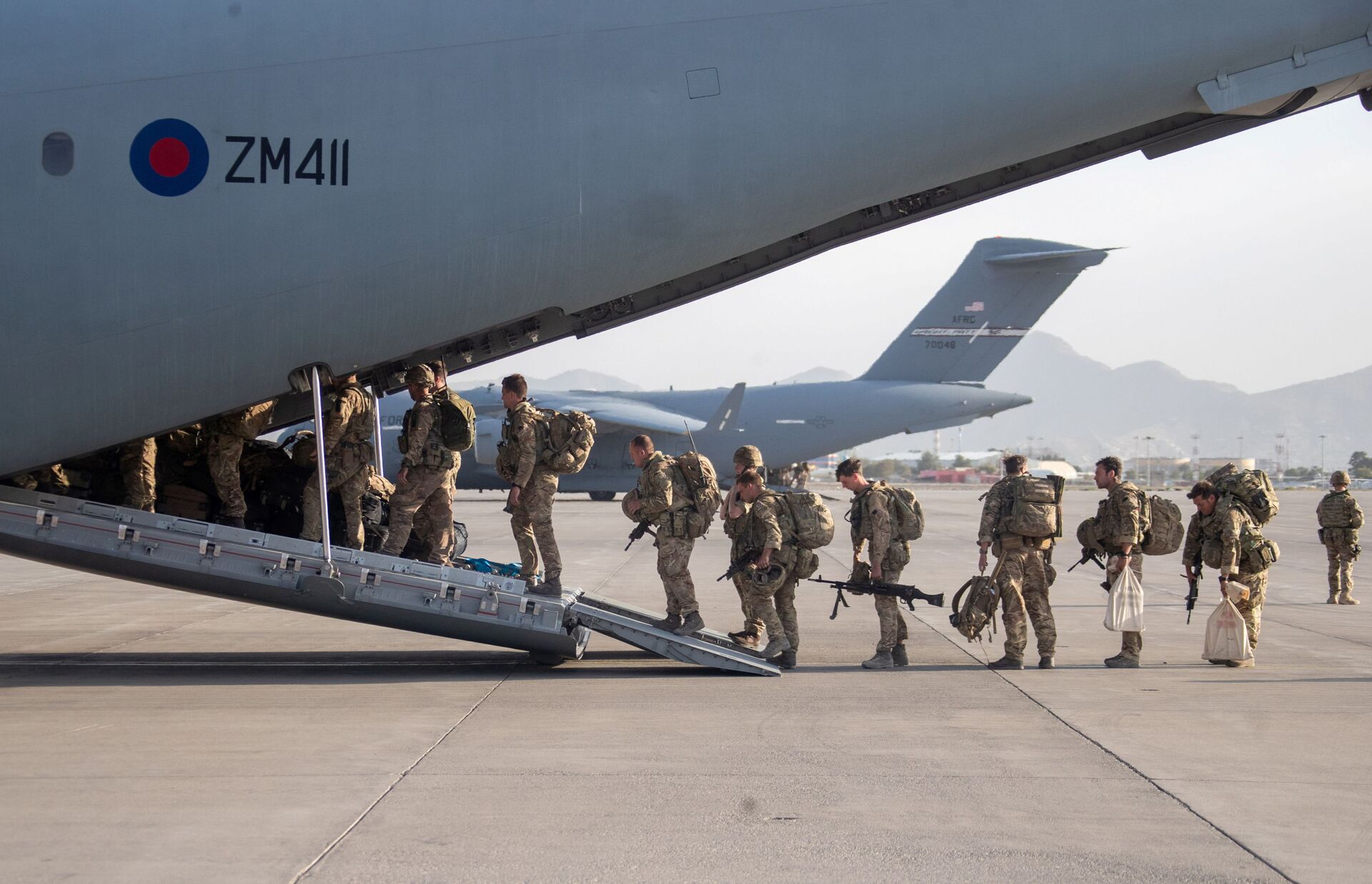Boris Johnson Slammed for 'Casual' Approach to National Security, 'Unclear Prioritisation of Risks'

© REUTERS
Subscribe
The Joint Committee on National Security Strategy analysed the UK government’s decision-making amid the COVID-19 pandemic and the abrupt move to withdraw US and NATO forces from Afghanistan to uncover "serious weaknesses" in the existing system.
Boris Johnson’s government has been lambasted for being "unstructured" and "lacking in central oversight and accountability" in its approach to tackling national security risks.

Weekly question time debate in Parliament in London
© REUTERS / REUTERS TV / Weekly question time debate in Parliament in London
The Joint Committee on National Security Strategy, which scrutinises the government structures regarding their decision-making, issued a highly critical report on 19 September that deplored "serious weaknesses" in the current system.

UK military personnel board an A400M aircraft departing Kabul, Afghanistan August 28, 2021
© REUTERS / UK MOD Crown copyright 2021
The Committee, comprising senior MPs and peers, warned that Whitehall had demonstrated it was “inadequate to the task” of dealing with more than one crisis at a time, such as the coronavirus pandemic and the Afghanistan withdrawal that resulted in a Taliban* takeover of the country.
"The whole point of the National Security Council is that it is supposed to prepare for, and act upon, a long-term view of our national security risks. It should be above the hurly-burly of daily concerns. But when two events - the Covid-19 pandemic and Afghanistan - demonstrated yet again what a dangerous world we now live in, weaknesses in the structures of the National Security Council were exposed," said Committee chairman Dame Margaret Beckett.
The former foreign secretary added:
"I pay tribute to the medical and military personnel and the civil servants who have worked so hard to respond to these two most recent crises. But their brave efforts cannot mask the fundamental need for the centre of government to get a grip on national security planning."
‘Lack of Clarity’
The report warned of a "troubling lack of clarity" regarding the role and remit of the NSC in the face of outstanding challenges, such as when the COVID-19 pandemic first erupted.
Expert witnesses in the report deplored “serious mistakes” made when NSC structures were abandoned in favour of "ad-hoc arrangements and improvisation".
The government under Prime Minister Boris Johnson was described as demonstrating a strategy with "weak oversight from the centre and unclear prioritisation of risks".
The UK government’s lack of preparation for the abrupt withdrawal of western forces from Afghanistan and subsequent frantic evacuation effort could “only be described as a systemic failure”, said the report.
JCNSS to publish its Report —The UK’s national security machinery — on Sunday 19 September 2021 at 00.01amhttps://t.co/ssvjdclOeZ
— Joint Committee on the National Security Strategy (@JointCtteNSS) September 17, 2021
Concerns were raised in the report over the Government's ability to tackle potential emerging security crises due to new reforms to the National Security Council, first set up in 2010 by David Cameron.
The report cited a review by national security adviser Sir Stephen Lovegrove, which revealed that in future Boris Johnson would spend approximately 65 percent less time attending NSC meetings that bring together senior Ministers and defence and intelligence chiefs.
Furthermore, PM Johnson would be chairing only half of the aforementioned gatherings.
"It is the prime minister's personal investment of time and authority that lends credibility to the NSC and its cross-government structures," stated the report.
The Joint Committee on National Security Strategy warned that this was a “retrograde step that suggests a more casual approach to national security”.
“Rather than learning the lessons from Afghanistan or Covid, the PM’s response is to reduce the number of hours he puts into keeping Brits safe,” said Labour defence spokesman John Healey.
The UK, Australia and US are natural allies, and our new partnership will become increasingly vital for defending our interests around the world and protecting our people back at home.
— UK Prime Minister (@10DowningStreet) September 15, 2021
→ https://t.co/wNEKOzAyzX
🇦🇺 🇬🇧 🇺🇸#AUKUS pic.twitter.com/7aV8PEKHlU
In response to the criticism, a government spokesman underscored the ongoing strengthening of the national security machinery following the UK government’s integrated review of foreign and defence policy earlier in the year.
"The prime minister is clear that the first duty of the government is to provide security for the people of the UK, which he is absolutely committed to delivering. The prime minister and his government have just agreed on a unique trilateral defence arrangement with Australia and the United States. The national security machinery is being strengthened in response to the integrated review as well as events such as COVID and Afghanistan as necessary."
*A terrorist organisation banned in Russia


